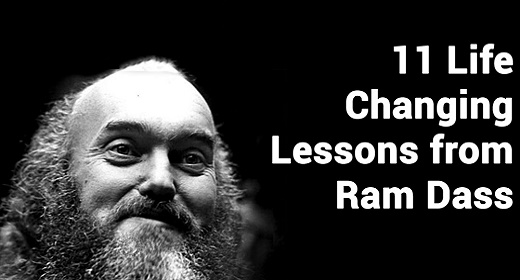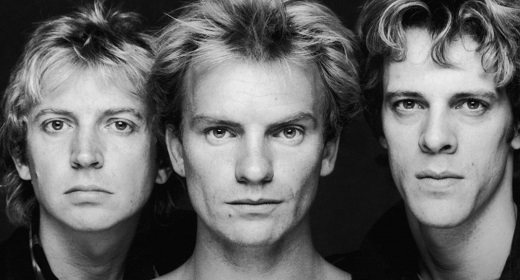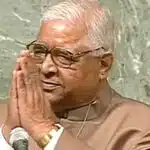by Edwina Shaw: Practices such as Yoga, Qigong, Tai Chi and Meditation have much more to offer than just psychical and mental benefits…
Although often associated with different religions, such as Hinduism, Buddhism or Taoism, they are not religions or even religious practices. They are philosophies. Teachings. Practices that work not only on the body or the mind but open the practitioner to a higher awareness, and ultimately help them to open their hearts to the supreme reality of oneness.
For almost twenty-four years now I’ve had a daily practice of Astanga-based yoga. Founder, Sri K. Pattabhi Jois is famous for his motto:
Do your practice and all is coming.
When I first started practising, I had no teacher except a piece of paper with the primary series of postures on it, but I knew that saying. It didn’t mean much to me then. At first, I saw yoga only as a way to boost my fitness and perhaps lose weight. It didn’t take me long to realise though, that yoga was working on me in many more ways than just the physical.
As Pattabhi said:
Yoga, as a way of life and a philosophy, can be practised by anyone with [the] inclination to undertake it, for yoga belongs to humanity as a whole. It is not the property of any one group or any one individual, but can be followed by any and all, in any corner of the globe, regardless of class, creed or religion.
Find Your Practice
Yoga is certainly not the only practice available to those who wish to enhance their experience of life. Recently, I watched an interview with Qigong Grandmaster, Wong Kew Kit of the Shaolin Wah Nam Institute, where he discussed how the practice of Qigong, with its roots in Taoism and Buddhism, can benefit anyone, regardless of their faith. He explained that although people in the West see Taoism and Buddhism as religions, in Asia they are more likely to be considered teachings.

Practices associated with these teachings, such as Qigong, Tai Chi and meditation can be done by anyone, religious or not. The practices themselves have inherent value as a way of boosting health, cultivating energy, and building strength and vitality. However, as the Grandmaster explained, the practices also have spiritual benefits, in that energy is transformed, the mind is calmed and the heart is opened. This esteemed master believes that the calming of the mind and the releasing of negative emotions are spiritual benefits.
It is the same for yoga. As Pattabhi Jois said:
Yoga is good because the physical body improves, the nervous system improves, the mind improves, the intellect improves — so, how can yoga not be good?
The Grandmaster explained that Qigong developed independently of religious practices and can be practised by people of any faith, or none at all. Many great Qigong practitioners are Muslim or Christians or Buddhist. Just as many yogis or Tai Chi practitioners or meditators don’t align with any particular faith, yet still reap the benefits of their practice.
You Can Be Spiritual without Being Religious
All of these teachings can be practised purely for their physical and emotional benefits, without any religious aspect. They can be used just for health and vitality. Practitioners may have no belief in anything beyond themselves, but through these practices, they can live more vibrant and peaceful lives. However, the Grandmaster claims that even if this is their intention, they will still feel spiritual benefits. “They feel peaceful. They feel relaxed. That is spiritual,” he says. It can be a spiritual practice without being religious.
For me, spiritual means being in touch with who you really are, the deepest part of you. Everyone has a spiritual dimension. If you are involved in a specific religion then that might be spiritual for you. But if you’re not religious, then anything that gets you in touch with your inner self – quiet time, meditation, listening to music, reading books, surfing, gardening, walking in nature – anything that brings you home to yourself, might be spiritual for you. This part of your life can only be defined by you; there are no wrong or right answers.

The Grandmaster said that by practising Qigong and other related arts, we are able to move from the personal body into Universal energy. This universal energy is known by many names — God, Tao, Zen, the spiritual body of the Buddha, the infinite and omnipresent, the original face, the supreme reality, the great void. Everything there is. If we practise for long enough, then we too will move from the personal to the universal and experience oneness. Whatever words you may use to describe this phenomenon, it is a spiritual experience.
He goes on to explain that Qigong enables people to experience spiritual epiphanies and make their religion come alive. They can go further than just reading about an idea in a holy book and agreeing with it mentally. They can experience it. Through the practices, the practitioner can experience a cosmic reality and feel a sense of awe and wonder. Bliss. God-consciousness if you like.
Spirituality for Health and Well-Being
Our spiritual dimension is vital to our health and well-being, but in this fast-paced modern world, it is often neglected or even worse, negated. Perhaps the most common type of spiritual illness is depression, where a person’s spirit is literally pressed down. Qigong, Yoga, Taichi and meditation are powerful tools for overcoming spiritual illnesses like depression, and keeping them away for good. Teachings such as these help us to rise above our problems and find another way of being. As the Grandmaster said, we feel instead that the difficult situation offers us opportunities for development and self-improvement. These practices help give us a different perspective and enable us to step away from our own patterns and clear away the negative.
Practising regularly helps to cultivate a positive mindset and be healthy, happy and peaceful. They give us more vitality, so that we have energy not just for our work but also for play, so we can enjoy life fully. They may even increase longevity. We can look forward to a healthy old age and reap the benefits of many decades of practice and share this wisdom with others. With a practice, we can gain mental clarity rather than being stressed or depressed. By doing a regular practice the spirit is nourished and expanded. The Grandmaster says that when the spirit becomes strong and free, people are peaceful and happy. And when people are peaceful and happy, they will be able to make the world a better place.
Ellen Idler, Acting Dean of Social and Behavioral Sciences at Rutgers University, says that practices designed to make the whole being feel better help people engage in a more constructive manner with their families, their colleagues, and other people generally. She says that:
If such practices contribute positively to living healthier, happier lives, and it does appear they do, it is important that we know about it.

The Ripple Effect of Your Practice
Practices such as Qigong and Yoga provide clarity in the midst of demanding days. They cultivate the attention required to complete your tasks and lift your mood. Regular practice creates a sense of steadiness and grounding even when everything is in turmoil around you. They help you step back and see the situation you are embroiled in from a different perspective, while simultaneously helping you withdraw and develop a deeper, quieter and more loving relationship with yourself. Practice focuses you on the now, being in your body, without either grasping for the future or denying the past. Best of all, practice connects you to Universal oneness and inspires feelings of love, peace, compassion and joy.
Regular practise takes courage and dedication to yourself. Knowing that you are worth the effort. Even after all these years, most mornings I have to talk myself into getting onto the mat. “Just do a few salutes, you can stop after that if you want.” Once I start with those few salutes though, I remember that my practice is the most important thing I’ll do all day. Not only that, I’m enjoying it and the rest of the practice just flows.
Yoga has been a tremendous force for healing in my life. I haven’t become Hindu, but I have been able to heal myself of addictions and move through personal tragedies with yoga as a safe place to fall. My mat has soaked up more tears than I care to remember, and every day my practice brings me small joys and sometimes, when I’m lucky, a feeling of overwhelming love that has made me weep just as much as the griefs I have left behind.
As Pattabhi Jois said:
Awake my dear. Be kind to your sleeping heart. Take it out into the vast fields of Light and let it breathe.
And of course, most importantly, “Do your practice and all is coming!”










































